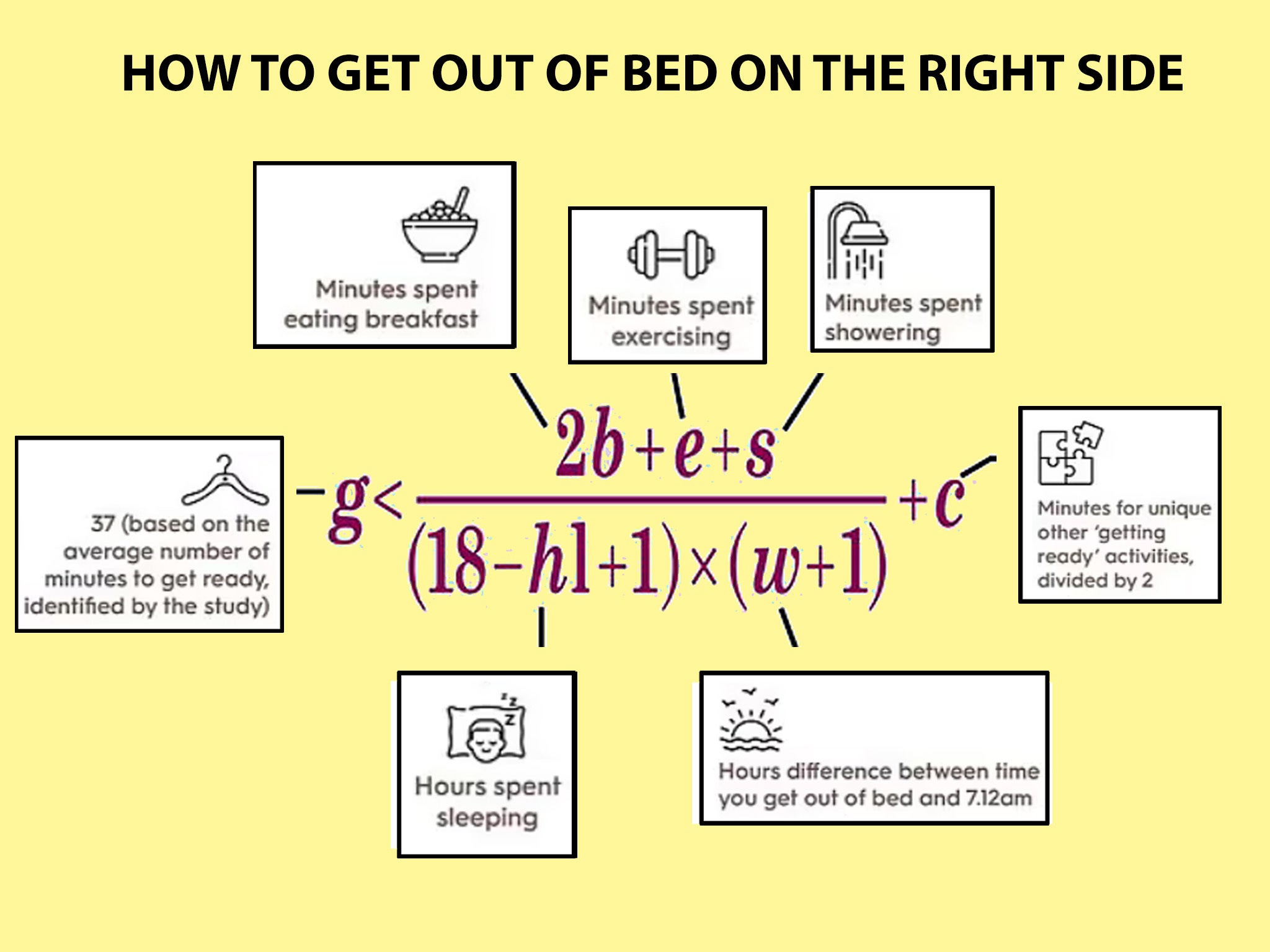Scientists claim to find formula for ‘the perfect start’ to your day
Research was funded by cereal company Special K and takes into account survey responses of 2,000 people in the UK
Scientists have devised an extremely specific formula for “the perfect start” to your day.
Mathematician and president elect of the British Science Association Dr Anne-Marie Imafidon analysed survey data collected from 2,000 people in the UK to come up with a formula to hack your morning routine.
According to survey responses, the perfect routine involves waking at 6.44am, getting out of bed at 7:12am, completing a 21-minute workout, going for a 10-minute shower, and then spending 18 minutes eating breakfast.
The research, funded by Special K Crunchy Oat Granola, has resulted in Dr Imafidon also devising a mathematical formula she claims will help people “get out of the bed on the right side” every day.
First, double the time you spend eating breakfast.
Then add the number of minutes you spend exercising and showering.
Next, subtract the total number of hours you slept the night before from the optimum 8-hour recommendation.

Then work out the difference in hours between when you get out of bed and 7:12am.
Divide the time spent eating, showering and working out by the sleeping and getting up times.
Finally, add together the number of minutes spent doing other morning activities like getting ready or completing a crossword.
Divide that number by two to arrive at a numerical value – that number, in minutes, corresponds to the ideal length of time you should be spending on your morning routine.

If applying the formula as prescribed above results in a value greater than 37, your morning routine is optimised for happiness. If not, you’re more likely to end up “on the wrong side of the bed”, she said.
Join our commenting forum
Join thought-provoking conversations, follow other Independent readers and see their replies
Comments
Bookmark popover
Removed from bookmarks